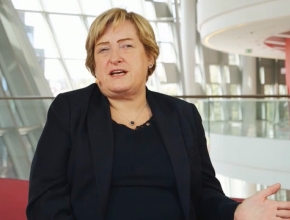In the European Union, the incidence of drug-resistant tuberculosis (TB) is low. However, the situation in Russia and former Soviet republics is very concerning. For instance, the proportion of multidrug-resistant strains in patients with TB is 44% in Belarus and 30% in Ukraine. As these countries border Poland and are frequently travelled to and from, should we expect that the incidence of drug-resistant TB may increase in the regions of Poland adjacent to the border?
Lori Whitehead: This certainly is a high prevalence for multidrug-resistant tuberculosis (MDR-TB). It is a concern because of geographic proximity to these countries. I guess there is a couple of things. There is not much you can do about people that cross the border as tourists because there is no screening, so there is certainly a possibility just because of transit within a local area that persons with active pulmonary MDR-TB could cross your borders, be tourists in your cities, and lead to spread of the infection.
Other things you can do in terms of immigration practices, there should be immigration screening policies in place, which I am sure there are, and perhaps they need to be a bit more stringent for persons that come from areas where there is a high incidence of MDR-TB. Now with DNA fingerprinting it is easy for the authorities to detect if there is a case of TB that migrated from one country or one position to another. And actually, there were made studies, case reports, that have shown some person migrating all through Europe and North America, and they can track all the cases that have resulted from him wandering through without a mask on and being undetected. So I would think that if these techniques are used with DNA fingerprinting in your country, if MDR-TB is on the increase, your local authorities will be able to get a handle on where it is coming from and what to do about it.
But yes, it is of concern, it is of concern for every country with global travel. Because you are so close to it, you are probably more at risk of having this problem.
 English
English
 Español
Español
 українська
українська







